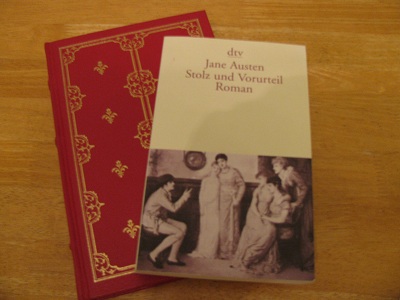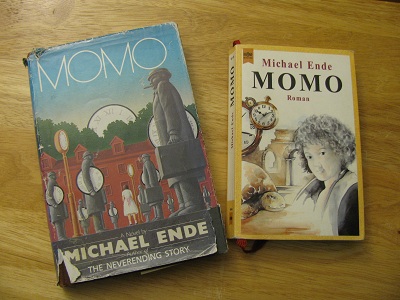Sonderling Sunday – Kapitel Siebzehn
It’s time — at last! — for Sonderling Sunday! That time of the week when I play with language by looking at the German translation of children’s books!
It’s been a *very* long time since I last posted. My blog had issues, and my life was busy, the most fun part of that being that I started dating someone! Juhu!
This week, it’s back to my standby, Der Orden der Seltsamen Sonderlinge, The Order of Odd-fish, by James Kennedy. We left off right at the halfway point, at the beginning of Chapter Seventeen.
I do enjoy starting with the opening sentence:
“Jo and Ian sat in a gloomy parlor, waiting for an old woman to speak.”
= Jo und Ian saßen in einem dämmrigen Salon und warteten darauf, dass die alte Frau sprach.
“dim and dreary” = dämmrig und trübselig
“ancient lace drapes strangled the sunlight” = alte Spitzenvorhänge hielten das Sonnenlicht fern
(“old lace curtains held the sunlight far”)
Here’s a useful sentence:
“Jo couldn’t stop her leg from jiggling.”
= Jo konnte nicht verhindern, dass ihr Bein wippte.
“the whole enterprise” = diese ganze Angelegenheit
“insulting” = beleidigend
“the last of his enthusiasm vanished” = der letzte Rest seiner ursprünglichen Begeisterung verpuffte
(“the last remnant of his original [ancient-sprung] enthusiasm evaporated [puffed out]”)
“She was a withered noodle of a woman.” = Sie war eine vertrocknete, dürre Frau
(“She was a dried-up, withered woman.” Pooh! Lost the metaphor there.)
“thick dark veils” = dichten, dunklen Schleier (That’s kind of fun to say.)
“incredulous disdain” = ungläubiger Verachtung
“icy silence” = eisiges Schweigen
“tightly controlled rage” = mühsam beherrschter Wut
(Google translates that as “tedious dominated rage.”)
“She hooted, gurgled, and shrieked” = Sie heulte, gurgelte, und kreischte
“Hoo nelly, that’s rich!” = Nie und nimmer, das ist ja köstlich!
(“No way [Not and never], that is expensive!”)
“Oh, you can’t make this stuff up!” = Oh, so etwas kann man sich nicht mal ausdenken!
“moldy cake” = muffigen Kuchen (Oo, can’t you just see the “muffigen” cake?)
“guided” = manövrierte
“a rattling cackle” = ein schrilles Keckern
“threatening letters” = Drohbriefen
[Incredible! At this point, I finished the post — and then WordPress ate the last part of what I posted! Urgh! I will now try to reproduce it.]
“joke quests” = albernen Aufgaben
“clouds of dust” = Staubwolken
“make my death swift and merciful” = gewähren Sie mir einen schnellen und gnädigen Tod
“villainous” = schurkischen
“Sincerely” = Mit vorzüglicher Hochachtung
“smelling salts” = Riechsalz
That’s it for tonight!
I have to add that I recently saw “Muppets Most Wanted,” and one of the funniest things (to me) was when Kermit was mistaken for a criminal mastermind frog and captured in Germany. The headlines screamed about the “Evilen Froggen”! Readers of Sonderling Sunday will know the correct translation is Böse Frosch, but of course how to translate English to German is just to stick “en” on the ends!
And look at the useful phrases we’ve learned tonight! Now if you travel to Germany and get pulled over by police, you know how to say, “Gewähren Sie mir einen schnellen und gnädigen Tod!”
May your week be the opposite of dämmrig und trübselig!
Mit vorzüglicher Hochachtung,
Sondra Eklund









